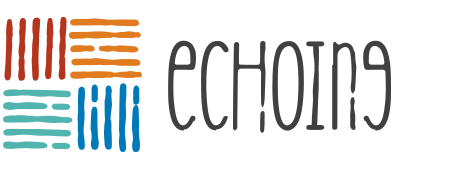Hacktivism
Hacktivism
Hacktivism

Hacktivism is hacking to achieve social or political objectives and “an area worthy of research due to its ‘alternative vision of society’ and its unique positioning within the system to affect change – a change that will not only impact the virtual realm of politics, but one that has the potential to affect real-world action”.
Examples
Examples
Hackathons are time-bound events where participants gather to build technology projects, learn from each other and experts, and create innovative solutions that are often judged for prizes. While hacking can have negative connotations when it comes to security vulnerabilities, typically for hackathon events hacking refers to modifying original lines of code or devices with the intent of creating a workable prototype or product. Events may have a specific theme (use of a particular dataset or project based on a designated platform) or they may be open-ended with challenges focused on innovation or a social good.
Examples of Hackathons
Hack yourself into Danish culture
Type: Physical event
Institution: National Gallery of Denmark
Year: 2014
Result: From desktop research
Description: A journalist who joined a group of people with different background to solve a challenge presented by CHOs in Denmark during a pitch round. The group wanted to challenge the power of the curators. Why are they the only ones who decide what hangs on the wall of the gallery? Why not let the audience decide? And to spice things further up they adopted the idea from dating-app Tinder – like or dislike this painting with a swipe of your hand on your mobile. If you dislike, you will get other paintings to choose from within the same span. And in the end the gallery will put up the painting with most likes.
Link: Hack yourself into Danish culture - Find Fun 4.
Guide your Guide: EU Hackathon winner 2020
Type: Digital event
Institution: EU HACKATHON, BRUSSELS
Year: 2020
Result: from desktop research-the group worked a year with developing a site and piloting it with guides but never got enough funding to implement it.
Description: EU in Brussels organized a Hackathon in 2020 on recovery from Covid in many areas: One of them was Arts and Entertainment and people chose a challenge that was already submitted to the Hackathon committee, met for first time and created a solution for this particular challenge during a weekend. Guide your Guide was the winner in their category. Then a second Hacktahon weekend followed where you are then matched with investors that are willing to help the idea develop. You meet other professionals with different backgrounds and expertise, and you work for an idea or concept all are interested in.
Link: Guide your Guide.
Europeana.pro
TYPE: Digital event
Institution: Europeana.pro
Year: 2020
Result: from desktop research
Description: On March 17-18, 2016 the Europeana Space Project hosted “The Future Museum Challenge” in Venice, Italy. The event was intended to engage creative minds and re-invent the future museum experience.The Future Museum Challenge focused on building new products and develop creative ideas that will bring museums into the 21st century. Aspects included the museum experience, enhancing content, engaging the audience and improving the educational experience. Participants were invited to focus on creating products that are not only innovative but also can produce sustainable business models.
The three teams with the best ideas were selected and invited to London for an intensive Business Modelling Workshop to hone their ideas’ business potential and the team with the strongest idea will win a 3-month intensive incubation package from REMIX and the Europeana Space Network.
Link: Europeana.pro.
Parallel events open to the public that occur at the same time hosted by different cultural organizations on a given date. The public can join workshops, art exhibitions, hands on seminars, etc. Sometimes there is a common goal; for example, to create awareness on climate change.
Examples of Make-athons
Type: Physical and digital event running in parallel by many small stakeholders HEIs and CHOs
Institution: CURTIN UNIVERISTY AUSTRALIA
Year: 2014-ongoing
Result: Not in the desktop research
Description: Parallel events open to the public occur at the same time hosted by different cultural organizations on a given date. The public joined workshops, art exhibitions, hands on seminars, etc. Sometimes there is a common goal; for example, to create awareness on climate change and indigenous culture and various other subjects.
Link: CURTIN MAKATHON.
The Innovation Sprint’s goal is to find an intensive, creative output on real business problems within 48 hours. Participants from the fields of business, design, and technology contribute their specific knowledge. As a team, they are supported by experienced coaches in the development of new ideas and solutions.
Examples of Make-athons
TYPE: DIGITAL AND PHYSICAL EVENTS
Institution: COMPANIES
Year: 2022
Result: Not from Desktop research
Description: Company organizing various events for collaborations between University staff and students, Companies NGOs, Organisation to work on an idea in 24 hours and create social impact.
Link: INNO days.
Follow eCHOing on X and YouTube
EU-prosjekt

This project has been funded with the support of the Erasmus+ programme of the European Union. The European Commission’s support for the production of this website does not constitute an endorsement of the contents, which reflect the views only of the authors, and the Commission cannot be held responsible for any use which may be made of the information contained therein.
